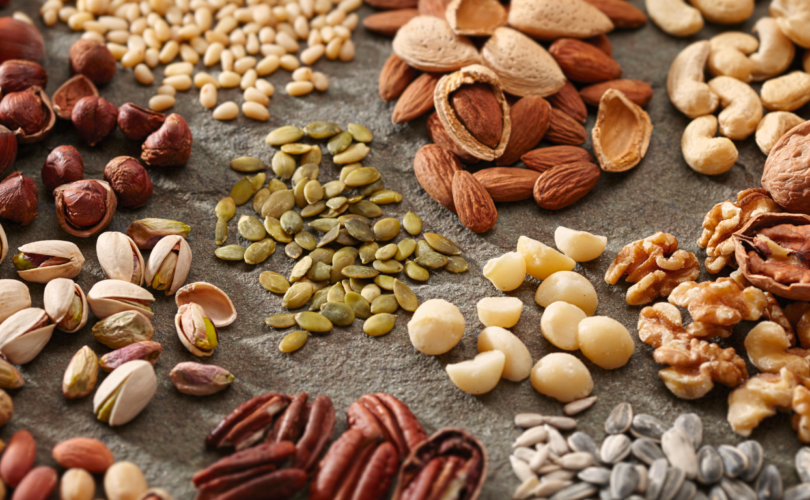Introduction
Living with diabetes requires careful attention to one’s diet, as maintaining stable blood sugar levels is of utmost importance. One delicious and nutritious option that has gained significant attention is “Nuts and Seeds Mixes for Diabetics.” Packed with essential nutrients and boasting numerous health benefits, these mixes offer a flavorful way to manage blood sugar levels and improve overall well-being.
The Nutritional Powerhouses
Nuts and seeds are nutritional powerhouses that provide a range of health benefits for individuals with diabetes. They are rich in healthy fats, fiber, protein, and essential vitamins and minerals. These components work synergistically to support blood sugar control, heart health, and weight management.
Blood Sugar Regulation
The combination of fiber and healthy fats in nuts and seeds contributes to slower digestion and a gradual release of glucose into the bloodstream. This can help prevent rapid spikes in blood sugar levels after meals, providing a more stable and controlled response. Additionally, the presence of magnesium in these mixes enhances insulin sensitivity, aiding the body’s ability to utilize glucose effectively.
Heart Health
People with diabetes are at a higher risk of cardiovascular issues, making heart health a top priority. Nuts and seeds are rich in monounsaturated and polyunsaturated fats—heart-healthy fats that help lower “bad” LDL cholesterol levels while promoting “good” HDL cholesterol. Omega-3 fatty acids, prevalent in seeds like flaxseeds and chia seeds, further support heart health by reducing inflammation and improving blood vessel function.
Weight Management
Maintaining a healthy weight is essential for managing diabetes. The protein and healthy fats found in nuts and seeds contribute to feelings of fullness and satiety, reducing the likelihood of overeating. Incorporating these mixes as snacks can help control hunger and support weight loss or maintenance efforts.
Antioxidant Support
Nuts and seeds are abundant sources of antioxidants, such as vitamin E and selenium. These antioxidants combat oxidative stress and inflammation, which are often elevated in individuals with diabetes. By reducing oxidative damage, nuts and seeds may play a role in preventing complications related to diabetes, such as nerve damage and kidney problems.
Choosing the Right Mix
Creating an effective nuts and seeds mix for diabetics involves selecting a variety of options to maximize nutritional benefits. Some excellent choices include almonds, walnuts, chia seeds, flaxseeds, pumpkin seeds, and sunflower seeds. These ingredients offer a balance of healthy fats, fiber, protein, and micronutrients.
Incorporating Nuts and Seeds Mixes
Incorporating nuts and seeds mixes into a diabetic-friendly diet is simple and versatile. They can be enjoyed as a standalone snack, added to yogurt or oatmeal, mixed into salads, or even used in baking. However, portion control is crucial, as nuts and seeds are calorie-dense. Aim for a small handful or about 1 ounce per serving to manage calorie intake while reaping the nutritional benefits.
Consultation with a Healthcare Professional
While nuts and seeds mixes can offer numerous health benefits, it’s important for individuals with diabetes to consult their healthcare provider before making significant dietary changes. Some individuals may need to monitor their intake more closely, especially if they are taking medications that affect blood sugar levels.
Summary
“Nuts and Seeds Mixes for Diabetics” present a flavorful and nutrient-packed solution for managing blood sugar levels, promoting heart health, aiding weight management, and providing essential antioxidants. By incorporating these mixes into a well-balanced diabetic-friendly diet, individuals can harness the power of these natural foods to enhance their overall well-being. Remember that moderation and a balanced approach are key to harnessing the full potential of nuts and seeds for diabetes management.
Please note: This article provides general information and is not a substitute for professional medical advice. Always consult with healthcare professionals when concerned about your health.


